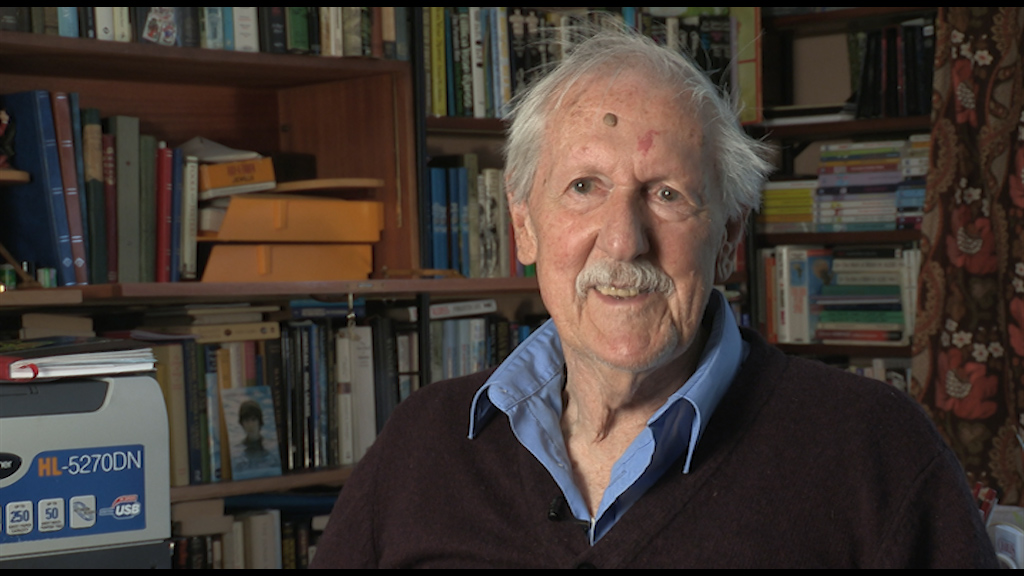NEXT STORY

Contemplating the end of life
RELATED STORIES

NEXT STORY

Contemplating the end of life
RELATED STORIES


|
Views | Duration | |
|---|---|---|---|
| 71. My wife Margaret | 70 | 05:04 | |
| 72. I have always continued to write | 46 | 02:30 | |
| 73. Contemplating the end of life | 106 | 03:32 | |
| 74. The durability of love | 63 | 04:23 | |
| 75. Love is not a straightforward business | 47 | 05:52 | |
| 76. Mad with love | 106 | 01:48 | |
| 77. Research – the key to making my stories credible | 43 | 06:26 | |
| 78. Science fiction writers can be perceptive | 52 | 01:32 | |
| 79. I’m a sort of artist | 38 | 02:14 |

I continued to write. Whatever has happened, I have always continued to write. Short stories, poems, novels and of course, I've painted – we haven't gone into the painting bit. But the paintings that I did I called isolées, and they were abstracts. And at the moment, it happens there's an exhibition of them at the grand galleries of Goldmark in Rutland.
Alison and I went up and saw it and opened the whole business. Terribly nice people, the Goldmarks. Yes, so, that's the artistic side.
[Q] What do you find in painting that you probably don't find in writing?
Well, there's certainly something that I don't... there's something… something that eludes us, I believe... and I'm talking, not about people exceptionally, but people of moderate sensibility, who find, if they write, if they talk, if they paint, if they act... whatever you do, there is some little corner beyond speech or anything. And it's something that I think that many people mistake for God. I believe it's just an affliction of the human species, and we can't resolve it, not with the best medicine. I think there is something there, and I believe that it's possibly that something... I've often written about it in various diverse ways. It's that that keeps me writing, as though, one day, I might fumble across it.
Brian Aldiss (1925-2017) was an English writer and anthologies editor, best known for his science fiction novels and short stories. He was educated at Framlingham College, Suffolk, and West Buckland School, Devon, and served in the Royal Signals between 1943-1947. After leaving the army, Aldiss worked as a bookseller in Oxford, an experience which provided the setting for his first book, 'The Brightfount Diaries' (1955). His first science fiction novel, 'Non-Stop', was published in 1958 while he was working as literary editor of the 'Oxford Mail'. His many prize-winning science fiction titles include 'Hothouse' (1962), which won the Hugo Award, 'The Saliva Tree' (1966), which was awarded the Nebula, and 'Helliconia Spring' (1982), which won both the British Science Fiction Association Award and the John W Campbell Memorial Award. Several of his books have been adapted for the cinema. His story, 'Supertoys Last All Summer Long', was adapted and released as the film 'AI' in 2001. His book 'Jocasta' (2005), is a reworking of Sophocles' classic Theban plays, 'Oedipus Rex' and 'Antigone'.
Title: I have always continued to write
Listeners: Christopher Sykes
Christopher Sykes is an independent documentary producer who has made a number of films about science and scientists for BBC TV, Channel Four, and PBS.
Tags: writing, painting, exhibition
Duration: 2 minutes, 30 seconds
Date story recorded: September 2014
Date story went live: 17 August 2015